REPLACE Project Presented at JOINT SECAP Workshop in Rijeka
July 9, 2021 - The REPLACE Project was presented at the JOINT SECAP workshop in Rijeka on June 23. There is no better way to end a year and a half-long Interreg project for Croatia, which was one more ecosystem-concerned cooperation between Italy and Croatia.
When it comes to energy efficiency in Croatia, there is no doubt anybody cares about it more than the scientific community working and associating with Energy Institute Hrvoje Požar (EIHP).
Not only is the EIHP building on its way to becoming the first nearly zero energy building in the whole of the country, but EIHP's expertise also plays a big role in REPLACE Project from Horizon Europe. As TCN previously covered, the project aims to make Primorje Gorski Kotar County energy-renewable territory, and the ongoing meetings about the project (in collaboration with the University of Rijeka) see slow but steady progress in those respects.
As EIHP reports on its website, June 23 saw REPLACE Project presented in the congress hall of Rijeka's Jadran Hotel as part of the final workshop of the JOINT SECAP project.
„On behalf of EIHP, Antonia Tomas Stanković presented REPLACE in the second half of the event. The goal is to support European energetic, climate, environmental, economic, and social goals by 2030 and 2050 by encouraging the gradual replacement of inefficient and outdated cooling and heating systems with new, energy-efficient systems based on renewable energy sources“, informed EIHP.
JOINT SECAP, part of Interreg Italy-Croatia strategic program (much like the CASCADE Project TCN previously wrote about) aims to improve the climate change monitoring and planning of adaptation measures tackling specific effects in the cooperation area.
„The project idea reflects the necessity to operate at a wider district level and better define strategies and actions for climate change adaptation, especially for those weather and climate changes and hydrogeological risks affecting coastal areas. The first phase is developed to build the common methodology for Joint Actions definition and implementation and to share the basic knowledge about issues concerning climate change adaptation strategies and energy efficiency measures. The second phase starts upon the analysis uploaded in the web platform, acting as a useful tool for the development of scenarios for the Joint Actions to be implemented in the Joint SECAP plans, those last constituting the main project deliverable“, explained JOINT SECAP on its website. The workshop in Rijeka was the conclusion of the project as JOINT SECAP ended on June 30 after it began on January 1, 2012, with a budget of € 2,094,857.
The workshop in Rijeka, writes the EIHP website, was organized by Primorje Gorski Kotar County Office for Regional Development Infrastructure and Project Management and by Kvarner Regional Energetic Agency. Representatives of local authorities of Primorsko-Goranska county that were enrolled in creating an Energetic and Climate Sustainable Development Action Plan. These local authorities include towns such as Opatija and Kastav and the districts of Čavle, Matulji, and Viškovo.
„Joint SECAP analyzed energy spending for the included towns and districts, their risks and vulnerability regarding climate change, yearly emissions of CO2 in sectors of building construction industry, public lighting, and traffic. Concrete measures with the goal of adjusting to the effects of climate change and CO2 emissions down to at least 55% by 2030 were suggested“, stated EIHP.
With measures identified, the race with time begins as these measures should be in place as fast as possible to tackle one of the biggest challenges humanity is facing, and Croatia isn't able to be isolated from the threat.
Learn more about Rijeka on our TC page.
For more about science in Croatia, follow TCN's dedicated page.
Youth Work in Flux Conference Held in Rijeka
June 23, 2021 - Youth Work in Flux Conference held in Rijeka mid-June saw scholars, researchers, scientists, and professionals discuss and present their work in the domain of youth work.
With more and more concern invested in youth in Croatia (both academically and professionally), June 15-17 saw Rijeka as the host of the conference titled „Youth work in flux: an academic point of view on youth work training and education“.
The conference was organized by the Institute for Social Research in Zagreb and partners: University of Rijeka and Slovenian University of Ljubljana held as part of the Erasmus + project Supporting Evidence-based Education of Youth Workers.
„Our aim is to strengthen the epistemic community of scholars and researchers in the domain of youth work, while instigating an academic debate on existing knowledge in the domain, defining further topics that need to be explored, and investigating the possibilities of co-creating the knowledge with actors from the community“, said the official website of the Institute for Social Research in Zagreb as the page was inviting „all interested scholars, researchers, and doctoral students to submit their abstracts and contribute to shedding light on this proliferating topic“.
Among such researchers, Dr. Marko Mustapić and Dino Vukušić from the Ivo Pilar Social Research Institute stood out. The two researchers presented results of the research „Youth Activism and Sport: Legacy of Dražen Petrović and ‘heritage in the making’“. Their ethnographic research investigated „Mi smo Cibona“ (We Are Cibona) association, centered around Cibona, a famous Zagreb basketball club, and how the youth in that association respond to the famous Croatian sportsman Dražen Petrović – how they perceive, interpret, or reinterpret Petrović's material and symbolic heritage and how they feel about basketball club today and what is the future of the association's activism.
The research was done as part of a project called CHIEF - Cultural Heritage and Identities of European Future done in the Horizont2020 frame.
As Ivo Pilar Social Research Institute informs, CHIEF started on May 1, 2018, with a budget of 4,58 million euros. The concept was split into 10 working packages challenging both in theory and in practice, but with a goal to conduct field research on the population 14-25 years of age, to see what we can perceive about Europe's identity in the future as these new generations develop into social and political participants.
With such conferences and various projects that aim to empower youth to stay in Croatia, it is evident that the importance of youth is finally recognized in the country. But, will that be enough to engage politicians to offer more things for the youth and stop the exodus of young Croatians from the country is yet to be revealed by future events.
When it comes to youth, learn more about what Croatia can offer to kids and families on our TC page.
For more about science in Croatia, follow TCN's dedicated page.
ConTEL 2021: Scientific Conference on All Things Telecom in Zagreb
June 8, 2021 - From June 30 to July 2, the exciting field of information and communication technology will be at ConTEL 2021 conference in Zagreb.
With information and communication technology steadily growing, new challenges, questions and issues are opening up – both for the industry and academic community. Both industry and academia will get the chance to address the latest issues and questions at the 16th edition of the international telecommunication conference ConTEL 2021, which will take place from June 30 to July 2 in Zagreb.
As the Faculty of Electrical Engineering and Computing (FER) at the University of Zagreb reported on its website, the goal of the conference is to encompass current and upcoming network technologies that allow omnipresent internet and communications as key starters of the connected information society.
„With new services and access networks grows the need to enhance network infrastructure - not just in terms of quality and performances, but also in terms of scalability (upgrading), mobility, energetic sufficiency, and technology integration. The Conference program will introduce the newest achievements in selected fields, through regular and specific thematic meetings and workshops“, states FER.
To ensure the quality of the conference, researchers, and scientists in this respective field, researchers and scientists were invited to submit their papers of work by March 21. The paper went under two double anonymous reviews to ensure an unbiased assessment of its importance and contribution to the conference. The selected papers will be readable on the IEEE Xplore website, and the IEEE (Institute of Electrical and Electronics Engineers) is one of the key sponsors of the conference.
„IEEE and its members inspire a global community to innovate for a better tomorrow through its more than 396,000 members in over 160 countries and its highly cited publications, conferences, technology standards, and professional and educational activities. IEEE is the trusted 'voice' for engineering, computing, and technology information around the globe“, says IEEE, „the world’s largest technical professional organization dedicated to advancing technology for the benefit of humanity“ on its website.
„The format of the event will take into account the COVID-19 situation and travel restrictions. Our wish and goal is to have a live or hybrid event, with virtual participation as necessary. Stay safe and healthy, and we hope to see you in Zagreb!“, states the ConTel official website.
Learn more about Croatian inventions & discoveries: from Tesla to Rimac on our TC page.
For more about science in Croatia, follow TCN's dedicated page.
Future of Europe: Successful Croatian Stories
ZAGREB, 11 May, 2021 - Successful Croatian stories and a plan to include citizens in Europe's development were presented on Tuesday at the Croatian parliament, during the first part of the "Conference on the Future of Europe - A Vision of Croatia," during which Speaker Gordan Jandroković entered a debate with a robot.
The Conference on the Future of Europe is a pan-European, democratic project during which citizens have an opportunity to decide on how the EU should develop.
This is a project in which "citizens are in the centre," European Commissioner for Democracy and Demography Dubravka Šuica said.
Citizens can participate in panel discussions, debates and the plenary session, in which 108 seats are reserved for citizens.
An equal number is allocated to representatives of national parliaments and MEPs.
The plenary session will also include 54 Council representatives (two for each member state), three members of the European Commission, and representatives of the Committee of the Regions, the European Economic and Social Council, social partners and civil society.
"If we miss out on including citizens, we will leave room for populist ideas," said Šuica.
The conference provides a digital platform where citizens can exchange ideas, connect, make recommendations and launch initiatives.
Šuica warned that according to forecasts, by 2070 Europeans will account for only 4% of the global population and she believes that demography will be a point of interest for citizens.
Robot argues with Jandroković
Parliament Speaker Gordan Jandroković was the conference's host and during his opening address he was interrupted by Pepper the robot who warned him that he had violated the Standing Orders.
Pepper was made at the Faculty of Computing and Electrical Engineering in Zagreb.
Pepper and Jandroković then debated about parliamentary procedures.
Jandroković explained that this is a demonstration of what the future holds.
"If we are not smart enough, robots will manage us and not the other way around," he said.
Successful Croatian stories
Several successful Croatian stories were then presented to the parliament, including a project by the Sisak-Moslavina County Development Agency (SIMORA) promoting the town of Novska as the centre of the gaming industry in Croatia.
SIMORA director Mario Čelan said that the gaming industry, particularly now during the pandemic, had surpassed the film and music industry with regard to total revenue generated.
He added that the project had already launched 49 start-ups and that a new, four-year study programme for gaming technicians had been developed as well as that the National Recovery and Resilience Plan envisaged a gaming industry campus.
This has motivated young people to settle in Novska and the town now has the largest number of companies in its history, he said.
Dragan Schwarz spoke about Radiochirurgia, a special hospital for oncology patients in Zagreb.
More than 45,000 patients have been examined in the five years since the hospital's establishment and more than 4,000 operations were performed, said Schwarz.
"Our results put us at the very top of the global scene," he added.
Sven Lončarić spoke about the Artificial Intelligence Centre (CAI) of the Zagreb Faculty of Computing and Electrical Engineering (FER), which consists of 19 research laboratories, with FER currently implementing around 260 projects financed from national and international sources.
Boranka campaign, Toljanić family awarded with Croatian Sabor medal
Scouts Croatia and the Toljanić family from the island of Krk were awarded with the Croatian Sabor medal.
The Boranka project, implemented by the scouts' alliance, has been awarded with the European Citizen's Prize by the European Parliament in 2020.
Boranka is the largest reforestation project in all of Europe. To date more than 7,000 volunteers have planted more than 85,000 new trees in fire-devastated areas of Dalmatia.
The Toljanić family was named European Family of the Year in 2020. The family has 12 children and has developed a successful winery and hospitality business.
For more about politics in Croatia, follow TCN's dedicated page.
International Conference On Climate Change Held in Kaštela
ZAGREB, 13 April, 2021 - An online international conference on climate change was held in Kaštela, outside Split, on Tuesday to raise public awareness of the need to strengthen Croatia's capacity to deal with this matter.
The conference was organised by RERA, the public institution for coordination and development of Split-Dalmatia County as one of 11 partners in the EU project "Change We Care" between Croatia and Italy.
Croatia and Italy are to prepare joint projects to alleviate the consequences of climate change and include them in the new EU programming period 2021-2027.
Branka Pivčević Novak of the Ministry of Economy and Sustainable Development stressed the importance of developing the first national action plan on climate change, saying that the modernisation of the national meteorological network in Croatia was very important.
Speaking online from Italy, the "Change We Care" project leader Davide Bonaldo said the project envisaged evaluating the current situation and newer trends in physical and ecological processes along the Adriatic coast, making projections of scenarios in climate change conditions, and identifying measures to adapt to climate change in five pilot areas.
Those are Vransko Jezero lake, the Neretva river delta, the Jadro river and the Kaštela Bay in Croatia, and Mula di Muggia and the Po river delta in Italy.
The end goal of the project is to establish adaptation measures to deal with climate change, Bonaldo said, adding that local communities would benefit the most.
Climate change affects the low-lying coastal area, which is urbanised, as well as the cultural heritage and tourism, so the goal of this plan is the implementation of an integral approach to the management of the Kaštela coastal area in the context of climate change, said Professor Martina Baučić of the Split Faculty of Civil Engineering.
For more about ecology in Croatia, follow TCN's dedicated page.
Life After Pandemic and Tourism Recovery Discussed at Communication Management Forum
March 21, 2021 - The fourth online edition of the Communication Management Forum held from 19 to 20 March discussed what awaits us after the pandemic. There was also talk of tourism recovery, the industry hardest hit by the coronavirus pandemic.
The Communication Management Forum (CMF) was held online and was attended by scientists and experts from several countries, including Spain, Turkey, the United Kingdom, Russia, and India. The scientific event proved to be an excellent opportunity for a multidisciplinary discussion necessary about a crisis like pandemics. The conference opened numerous topics in sociology, communication, economics, and tourism, and gathered scientists and experts offered their views on what awaits us once the pandemic is over.
A key issue discussed at the CMF was what awaits us after the pandemic. The participants at the virtual roundtable "Post-pandemic world: a bad picture or good opportunity?" came to a common conclusion that adaptation was inevitable and that the change of business and social paradigm is something else we need to work on. Therefore, the pandemic and the post-pandemic world are equally seen as a good opportunity for all segments of private and business life.
"The situation caused by the pandemic was a threat to humanity. We are stuck in our own homes, and everything very quickly shifted from the real world to online. The way we live now is our present and near future, we have to accept that, but we don’t have to come to terms with it. We should try to lead a life as normal as possible. Still, the big question remains, how we will recover as a society in the anthropological sense?" said Slovenian anthropologist Dan Podjed.
The pandemic flooded the media with negative headlines, followed by a bit of encouraging news when the first vaccine appeared. Still, with a new wave of pandemics increasing, we returned to a negative perspective. Nevertheless, some sectors and segments of life have experienced tectonic changes, which will significantly affect the recovery and development perspective.
"Before the pandemic, tourism was mass, and it was focused on the number of as many guest arrivals possible in destinations around the world. This has completely changed the concept of tourism functioning. Stakeholders in tourism will have to accept the new reality and focus on the quality offered to attract tourists to their destinations, who will return in the future," said Jeremy Sampson, CEO of Travel, a leading NGO in the travel and tourism sector.
Sociologist Branko Ančić from the Institute for Social Research believes that crises like this increase the problems we have had as a society before.
"The pandemic has opened up many problems. On the one hand, we see an increase in hate speech in relation to different social groups, and on the other, we are witnessing immense togetherness. To deal with everything that this crisis has brought us, we need more responsible behavior of everyone in society," said Ančić, one of the co-chairs of the CMF Committee.
The Communication Management Forum 2021 was organized by Edward Bernays University College, the Institute of Tourism, and the Institute for Social Research in Zagreb. The two-day conference offered answers to questions about developing business and private life after the end of the pandemic. Scientists and experts agreed that the crisis had created many backs, but that adjustment has been key. Many agreed that the pandemic indicated that we were facing crises and challenges relevant in the next few years.
In four editions, the CMF has gathered more than 750 scientists and experts. The conference has also contributed to the conclusions from the communication and tourism aspect for many years. As Damir Jugo, Dean of Edward Bernays University College points out, this year’s edition has been the most scientifically relevant so far.
To read more news about lifestyle in Croatia, follow TCN's dedicated page.
PM Andrej Plenković: Croatia to Make its Contribution to Conference on the Future of Europe
ZAGREB, 11 March, 2021 - Croatia is ready to make its contribution to the Conference on the Future of Europe, in which Commission Vice-President for Democracy and Demography Dubravka Šuica will have one of the leading roles, Prime Minister Andrej Plenković said in Brussels on Thursday.
Croatia will make its contribution to the discussion on how to respond to global challenges together and how this Conference can improve the responses of the EU and its institutions to citizens' expectations and to numerous issues in the world which are now substantially different than they were before the COVID-19 pandemic, Plenković told reporters after meeting European Parliament President David Sassoli.
The leaders of the three EU institutions on Wednesday signed a joint declaration on the Conference on the Future of Europe, which is conceived as a public forum where citizens will over the next year be able to say what sort of Union they want.
The Conference is expected to open on 9 May, Europe Day. It should have been launched on 9 May last year but had to be postponed, partly because of the coronavirus pandemic, but mostly because the leaders of the EU institutions were unable to agree on who would chair the Conference.
The Conference will be chaired by a three-member presidency consisting of the Commission President, the Parliament President and the Prime Minister of the country holding the rotating presidency of the Council of the EU.
In addition to the collective presidency, there will also be an executive committee which will be responsible for the organisation and oversight of the Conference's work. Each of the three main institutions will have three members on the executive committee, while the representatives of national parliaments will have observer status. Croatia's Dubravka Šuica will be on the executive committee on behalf of the Commission.
Sassoli said that the Conference should result in the better functioning of the Union, which is expected to be given new competences.
Plenković and Sassoli also talked about problems with COVID-19 vaccines in the EU, EU membership prospects of the Western Balkans, and Croatia's efforts to join the Schengen zone and euro area.
Plenković said that Croatia supports the EU integration of southeast European countries, especially Bosnia and Herzegovina with which it shares the longest border and where Croats live as the smallest constituent ethnic group.
For more about politics in Croatia, follow TCN's dedicated page.
Kolinda Grabar-Kitarović Discusses Investment at InvestCro Conference
The InvestCro conference was opened by the editor-in-chief of Poslovni Dnevnik, Vladimir Nišević, who stressed the fact that this project opens up discussions topics that are of great importance to our society.
As Poslovni Dnevnik writes on the 18th of March, 2019, the "InvestCro: Investment in (Non) Opportunities in Croatia" conference, whose central theme is rather depressingly inspired by missed opportunities, ie planned investments that have not been realised, as well as obstacles investors encounter and also possible improvements to the arrival and treatment of foreign investors, is being held at the Westin hotel in Zagreb.
This conference is the second in a series of four conferences as part of the all-year-round multimedia project headed by Croatian news and media outlets Večernji list, Poslovni Dnevnik and 24sata entitled "InvestCro: Kako do ulagača" which discusses how investors can be attracted.
The President of the Republic of Croatia, Kolinda Grabar-Kitarović, stated that the current results of foreign investments don't match the desired image. She said that lessons should be learned from the mistakes alreayd made to avoid repetition.
President Kolinda Grabar-Kitarović said that Croatia was missing out on so-called Greenfield investments and has proposed five specific guidelines to the Croatian Government in order to attempt to tackle that problem.
"The results of direct foreign investment don't match the desired image. In 26 years, 33.5 billion euros has been invested in Croatia, but the problem is that the investments were mostly Brownfield [investments] and focused on ''nontradeable'' sectors. We're missing out on Greenfield investments, investment in the production of goods and services that will create quality jobs and be more export-oriented,'' said the president at the InvestCro conference in Zagreb.
She feels that the direction of development can be directed in the desirable direction if the appropriate lessons learned from the mistakes made are properly taken into consideration. "First of all, I'm thinking of investment woes, the shortage of people involved in attracting investors, the lack of approach planning and coordination," she said.
On their way directly from Pantovčak to the Croatian Government are five key guidelines for the faster and easier growth of investments in Croatia. It is necessary to consolidate the competences of all those responsible for attracting FDI (foreign direct investment) at a single national level, to create an investment attracting strategy aligned with other economic strategies, to focus on new models and soft investment incentives for added value and to constantly create an attractive investment climate.
The five recommendations include the continuation of work on a better overall image of the Republic of Croatia and the promotion of the country as a destination for investment, not just a tourist destination. In this regard, Grabar-Kitarović announced that the working group who deal with branding Croatia will come out with guidelines within a month.
"We decided to do something for our society, as well as for those who will still be here when we're gone. Without healthy investments, we will remain without investors, and for this reason we have just decided to speak [on the subject] through various conferences, just like this one today.
''I hope this conference will contribute to the progress of Croatia,'' Niševic said.
'' the last two years, two-thirds of greenfield investments in the EU took place in just six European countries. I believe that Croatia will raise its rating in 2019 and come over to the side of these six countries, with the help of new laws and a better quality framework for stimulating investment,'' said Minister of Economy Darko Horvat at the InvestCro conference.
"The share of investment in GDP is growing, we're at the average of EU countries. The third quarter in 2018 was, according to current information, optimistic, as there was a 4.9 percent rise. Croatia needs economic growth of five percent. Step by step, we're strengthening competition, there is no instant solution, and changes need to be deeply rooted.
We should help entrepreneurs to retain as much of their own funds as possible for the new investment cycle. We're digitising business and the state, in order to reduce the burden on entrepreneurs. Therefore, I expect growth in production, especially in the private sector. Through the Investment Incentive Act alone we attracted 16 billion kuna, with 12,750 new jobs being planned. We know exactly what kind of educational profile we need, we need to make sure we've got young people who will be employed there. We need a synergistic effect with cities and counties," the minister said, hinting at the need to all be on the same level.
"We want investments with new technologies and added value. Despite the global boom in the digital economy, less than 20 percent of such investments fell into the ICT sector. We are not only looking at the volume, but also the character and type of investment, as well as the quality of jobs which is what our young people who are leaving are looking for abroad. We need a bit of courage and some enthusiasm in order to turn these issues into a chance.
The Ministry of Economy has announced five new tenders, which is an innovation opportunity for domestic entrepreneurs. I'm sure that 303 million euros will be invested in Croatia's investment potential and that this year will end with development,'' concluded Horvat, adding the encouraging fact that this week, the representatives of several Swiss companies are browsing northwestern Croatia and looking for business zones that are ready for them to move part of their business to.
Mladen Fogec, president of the Association of Foreign Investors in Croatia, noted that Croatian pessimism could affect foreign investors very much.
"The rating agencies are constantly positioning us at the end of the second-third on the doing business scale, but they all get their perceptions from talking to our political parties, non-governmental organisations, and we're very inclined to being negative - we have to turn to optimism. When it comes to the perception of corruption... we're not in the best position, but when you ask a person whether or not they bribed someone, the answer is always that they didn't. Please spread optimism because Croatia has a lot of potential. In principle, there's an enormous problem with our mentality, the capacity for change isn't big enough, we're still not ready to start to change, and we're living in the era of digitisation and computerisation,'' Fogec said.
"We've spent far too much time wrestling with the past, we spent an actual minister of economy on Agrokor, and her successor is now spending most of his time trying to deal with Uljanik, which is also grappling with the past. We need to deal with the future. It's good that we have introduced a law on strategic planning. It's not a question of whether foreign investors want to come to Croatia, but whether or not we actually want foreign investors,'' claims Fogec.
He noted that the association he leads didn't issue the so-called ''white book'' for business for 2019 because the problems still remain exactly the same as they were before. "Nothing has changed, or it has changed at a slower rate compared to changes in neighbouring countries, so our latest edition is still valid," he concluded rather sarcastically.
For those of you who understand Croatian, here's a video of what has been said, suggested and discussed at the conference:
Make sure to follow our dedicated business page for more on doing business and the overall investment climate in Croatia.
3T Conference 2019 - Virtual Worlds Are Coming
The third edition of the 3T conference took placeon March the 12th in the Kaptol Boutique Cinema with various topics related to tourism and technology.
This the confirmed connection of tourism as the most important industry in Croatia and technology as a great support to tourism. The conference's director, Oleg Maštruko, opened the conference and pointed out the high share of tourism in Croatia's BDP. He emphasised that this and the digitalisation of services shouldn't be self-serving, but act as a tool to increase the efficiency and profitability of tourism and other sectors.
He said the framework for this years' conference was partly developed from topics covered in the previous two conferences.
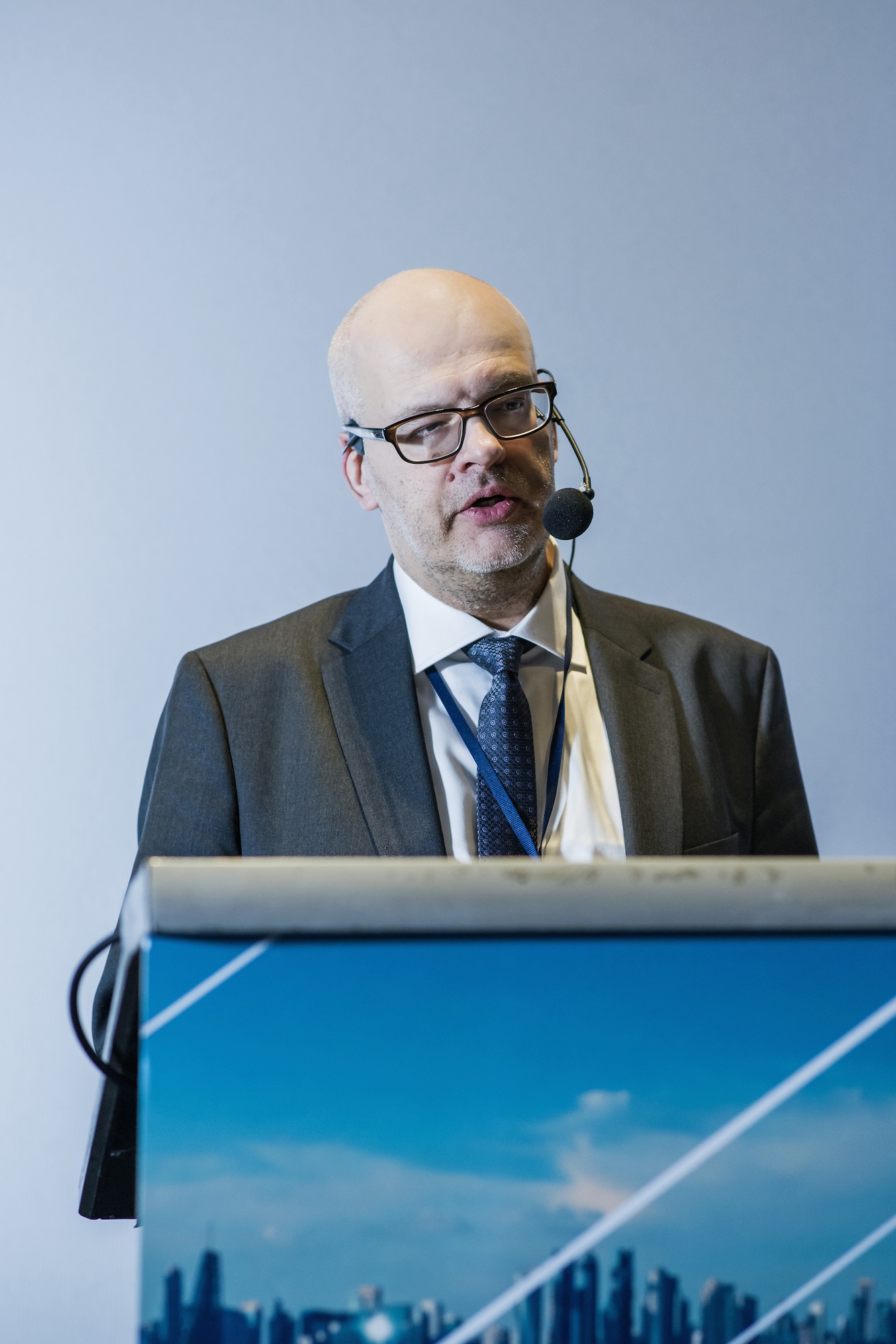
The keynote speaker, Miikka Rosendahl, from the leading VR studio in Europe - ZOAN, presented to the audience how Helsinki got to be the European Capital of Smart Tourism and how they built the virtual platform for Helsinki. This virtual platform plans to attract at least a million virtual tourists in 2019. This complex project was realised by using different technology solutions through 3D modelling. VR Helsinki is made to be the digital platform with which visitors can tour Helsinki not just in the actual surroundings, but experience the city from the beginning of the 20th century, buy designer Finnish products, or send them to friends.
It also allows users to meet other virtual tourists from all over the world and enables them to explore Helsinki together.
The company works closely with many tourism stakeholders in Finland such as Finnair, and the plan is to fully launch in 2019. The question for conference participants at the end of the lecture was which locations should be virtualised in Croatia, and what and where exactly would be the most attractive locations for virtual tourists to visit.
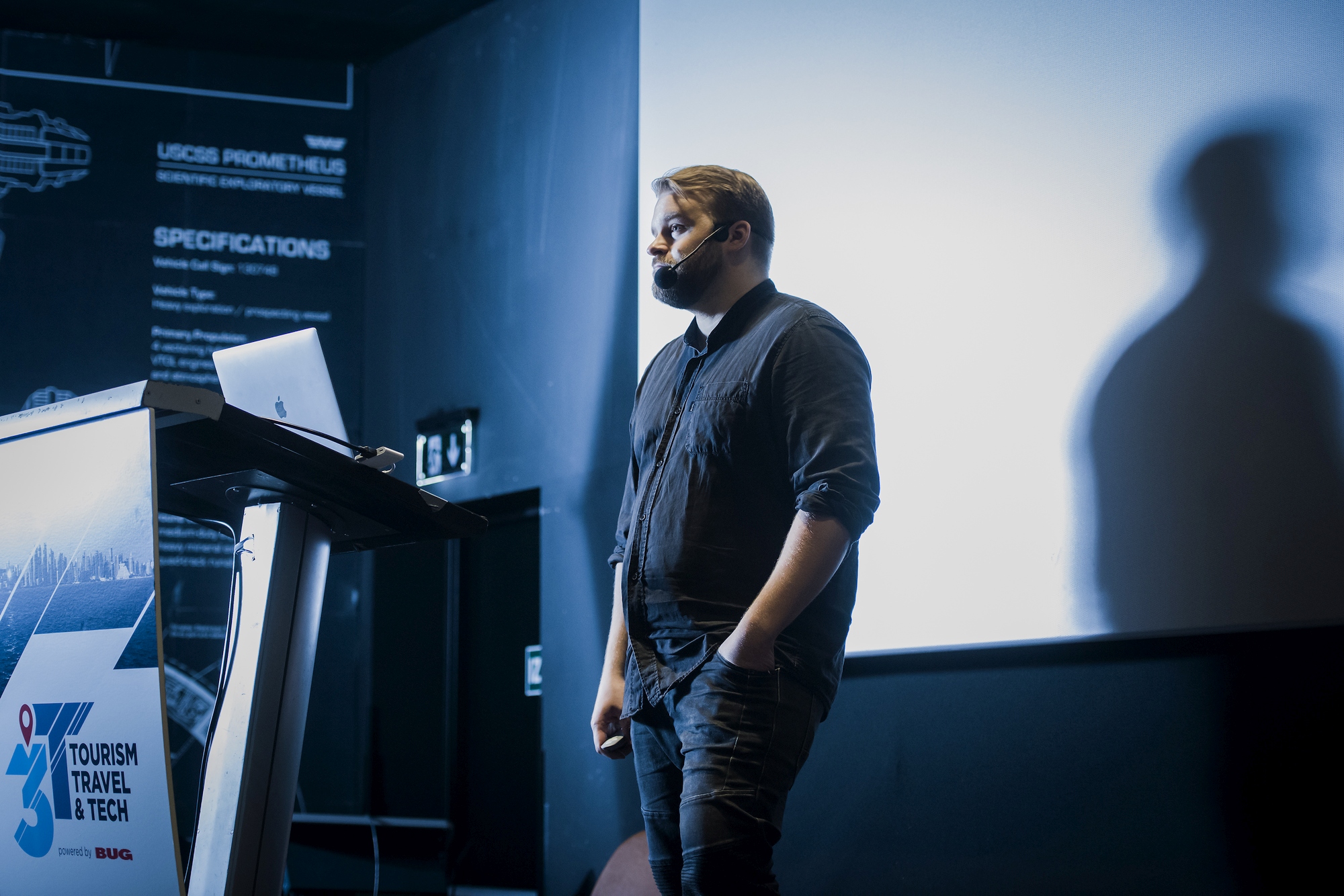
The second keynote speaker was Natalija Havidić from the Ministry of Tourism, and she presented the digitalisation project for public services in the tourism sector as part of e-Croatia 2020 project.
The plan is to develop public digital services by the end of 2020 and improve and connect services in the central tourist database, as well as improve the e-visitor system and the website Croatia.hr, as well as other e-services. All the data collected would be used for business intelligence in tourism and other related services.
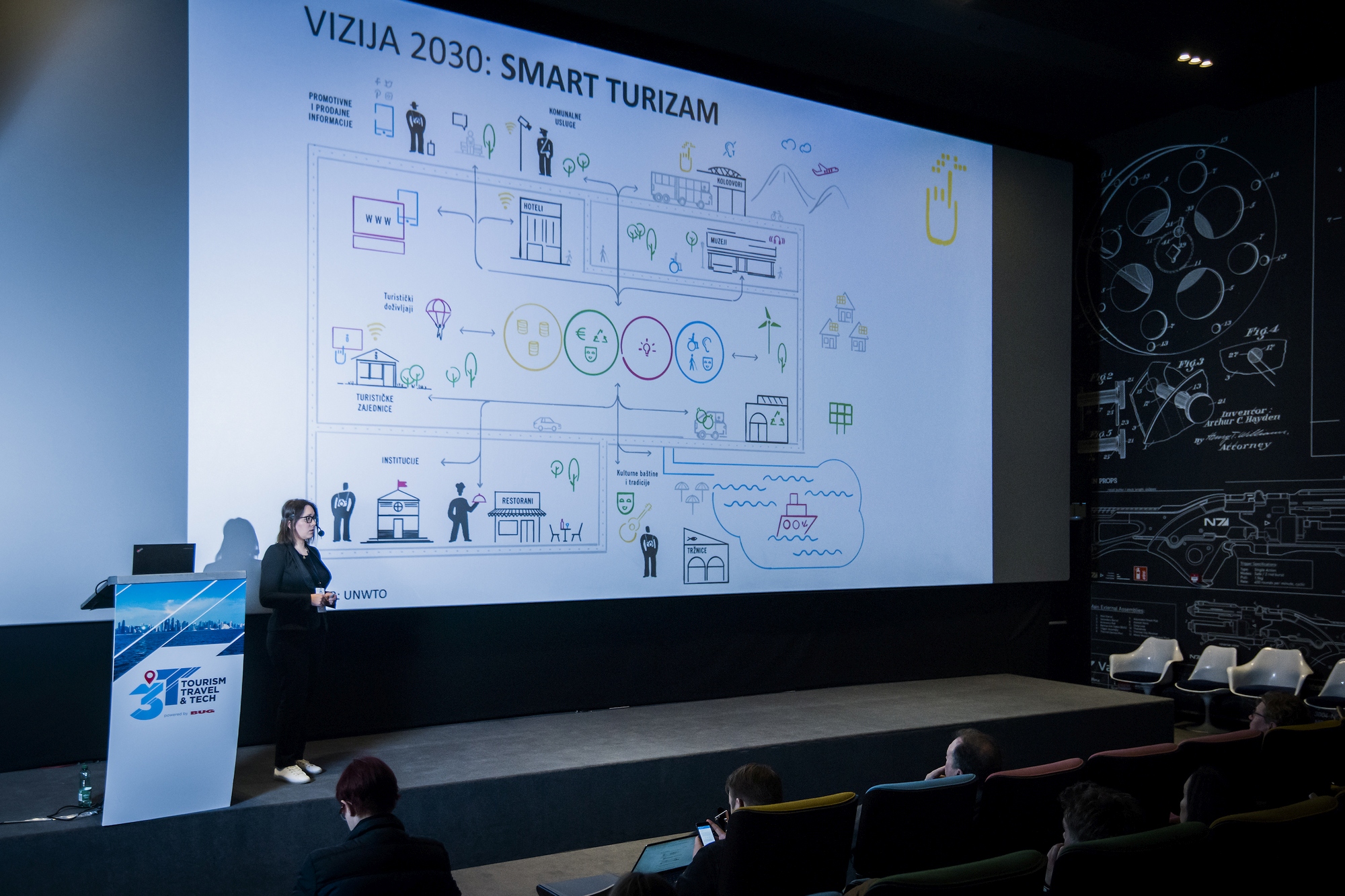
Ilija Brajković from Kontra moderated the panel entitled “Smart marketing in tourism – what really generates bookings". The participants were Analytics Lead from Bruketa&Žinić&Grey, Robert Petković, Head of Digital Marketing for Maistra Petar Milevoj, Internet Marketing Manager of Hotel Dubrovnik, Tomislav Kosir and Martina Srnec, Head of Marketing Department from the Croatian tourist board (HTZ).
All of the present panellists agreed that most important thing in planning marketing activities in tourism is to choose a quality promotional ''mix'' which aims at all important markets, as well as the continuous need for research into the desires of potential guests in order to provide as much information as possible. They emphasised the importance of having a great website for a product or service in tourism. and the importance of choosing suitable social networks which act as a good support for such promotional mixes. They agreed that word of mouth always beats other promotional efforts, therefore a good product and excellent service will always pay off.
The second part of the conference was traditionally split into three areas with main topics – technology, marketing and experiences. Questions about digitalisation in tourism, various booking platforms and digital solutions for payments, virtual reality in services and different IT solutions were covered by experts from Hrvatski Telekom (Croatian Telecom), Combis, Auka, Ericsson Nikola Tesla, Hewlett Packard Enterprise, Lemax, SedamIt, Spotsie and other such participating companies.
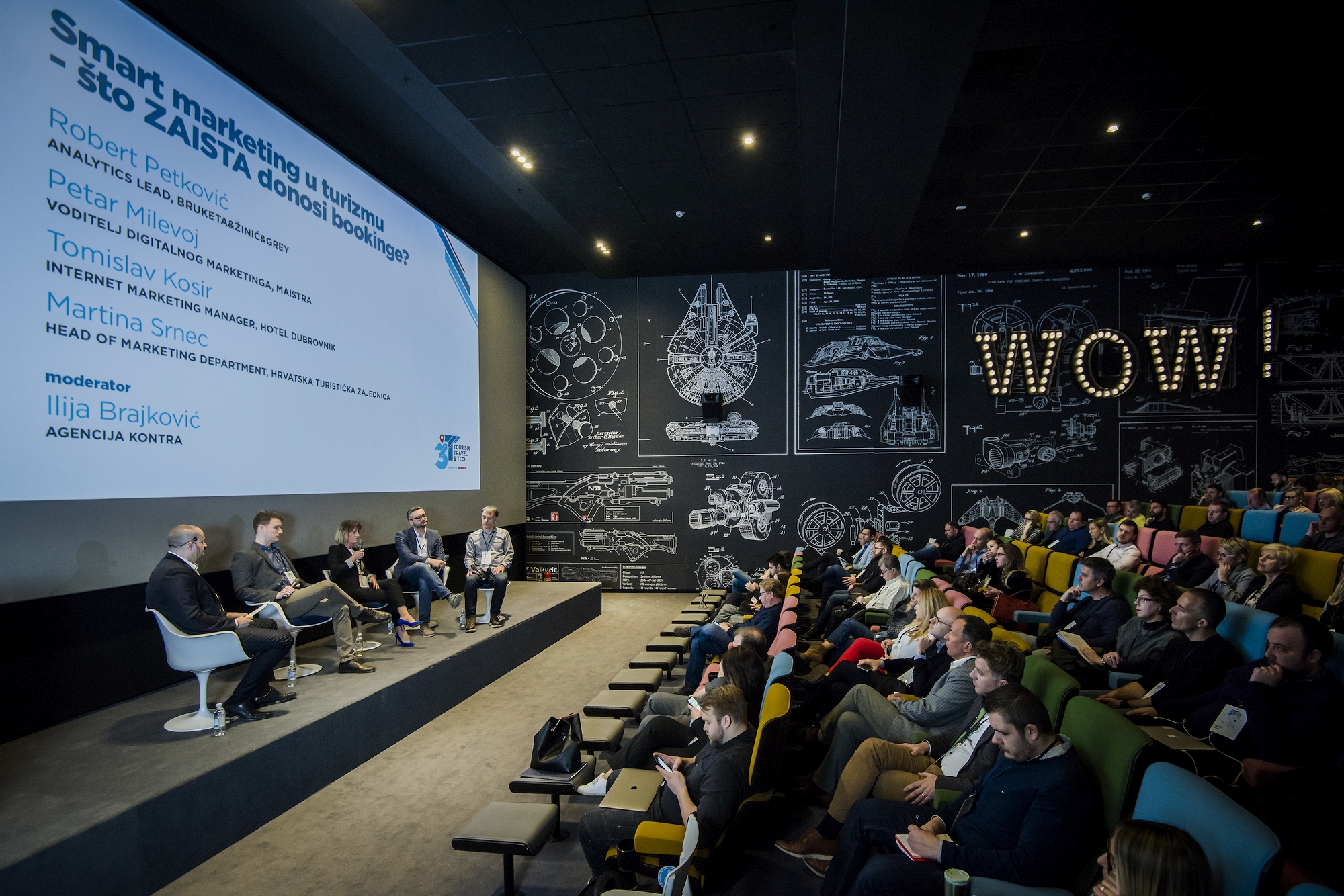
In the afternoon, there was another panel in which the topic "Croatian tourism in new technology surrounding – Growth limits" with moderator Željko Ivanković, from the Polazišta i perspektive think tank, was discussed.
The participants were Martina Nimac from the Croatian Chamber of Commerce, Neven Ivandić, from the Institute of Tourism, and Petar Rimac from the Expedia Group. Neven Ivandić presented the results of the research on some of the key issues of the sustainability of Croatian tourism and pointed out problems that come with the growth of tourism. The panellists debated on trends in other tourism destinations, like the shift from small family businesses to resorts, and adapting to the needs of tourists with digital solutions.
This years' 3T conference brought about new topics, interesting lectures and offered suggestions on how to deal with constant changes in tourism. The 3T conference is slowly building its brand, and it may well be the one in Croatia that helps tourism businesses to find appropriate solutions for their business processes along with the use of technology.
3T – Tourism, Travel and Tech Conference – Smart Tourism and More
This year will see the third edition of the 3T - Tourism, Travel and Tech conference. This conference has the goal of connecting tourism and IT professionals, and this year, the main focus of the conference lectures is smart tourism.
The share of tourism in Croatia's GDP is close to 20 percent, which is the highest percentage in the European Union. Tourism and IT are the two fastest growing and successful sectors in Croatia and therefore should collaborate more and use each other's strong points. Tourism should use innovative start up solutions and follow the trend which implements technology's role in travel and vacation. The role of smart tourism is growing and tourism businesses should use it, technology is here to support all of this.
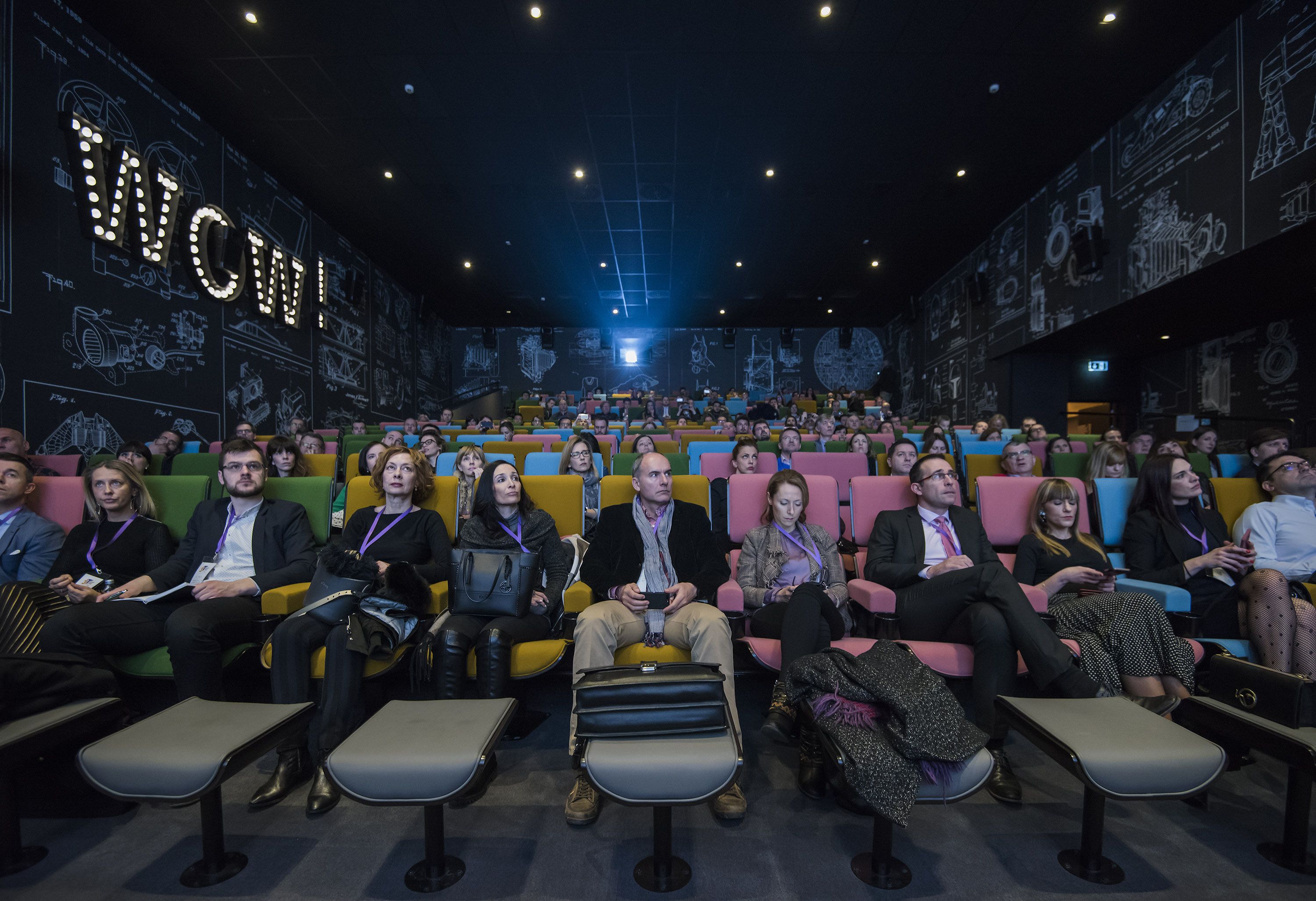
The first keynote speaker is Miikka Rosendahl, who will explain how Helsinki obtained the prestigious title of the Virtual Capital of the World and what Croatian tourist destinations can learn from this practice and experience. The keynote speech will be followed by a panel discussion on the topic “What really generates bookings” which will be moderated by Ilija Brajković.
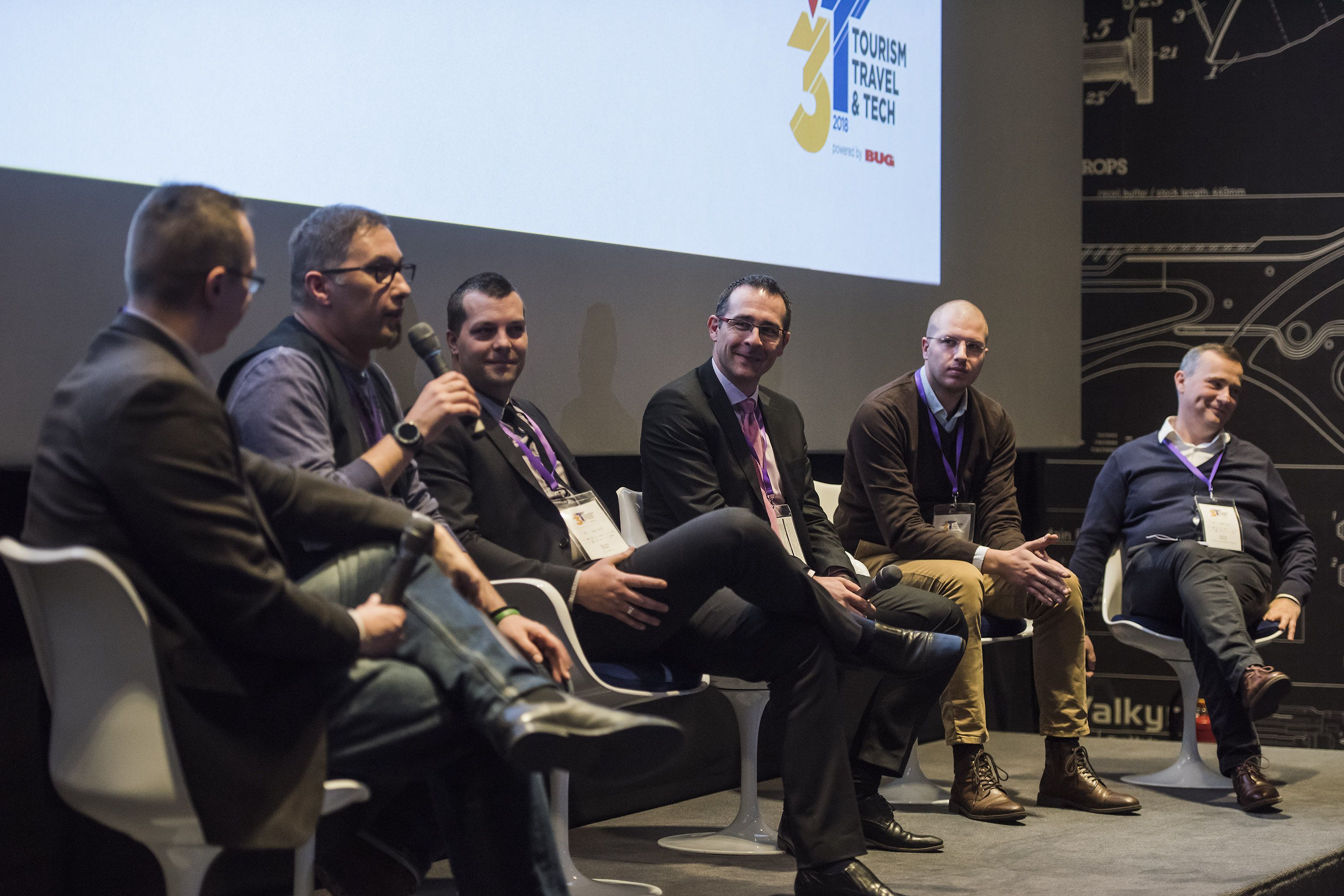
Finally, another keynote speaker, Natalija Havidić from the Ministry of Tourism will present a digitalistion project for public services in the tourism sector. The conference will see about fifteen other lectures, presentations and discussions.
“Helsinki recently won the European Capital of Smart tourism competition and I’m happy to have the representatives from Helsinki here to let us listen to their experience in using the technology to improve their tourism offer. When we organised the first 3T conference in 2017 in order to connect the IT and tourist sector, it was a bit of a risky move. An excellent response to the first and the second edition of the conference proved we offered professionals and visitors what they wanted. This year will bring various content”, said Oleg Maštruko, director of the 3T conference.
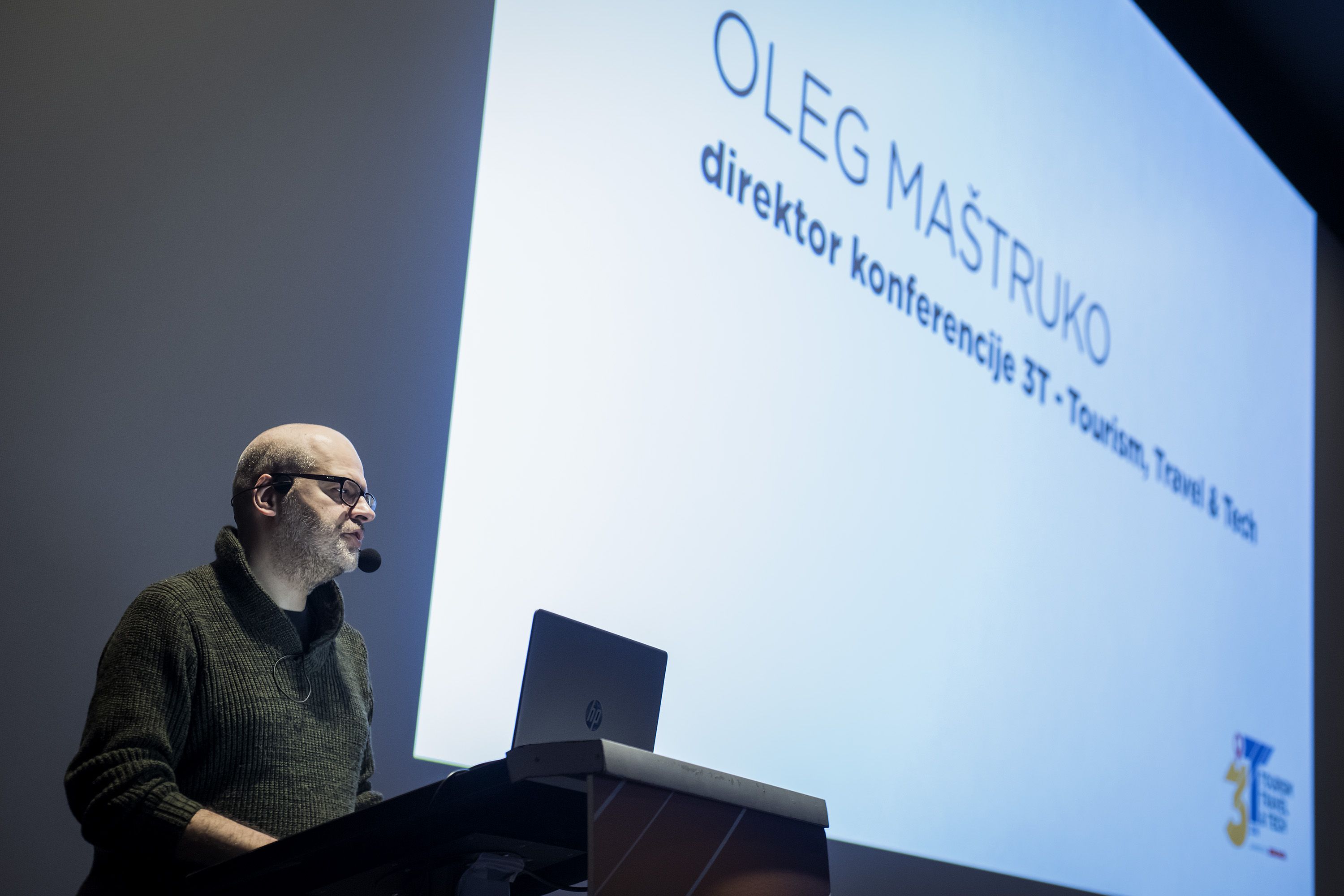
The third 3T conference will take place on March the 12th in the Kaptol Boutique Cinema in Zagreb. Make sure to get your tickets in order to keep up to date with all of the rapidly developing technology trends in tourism.
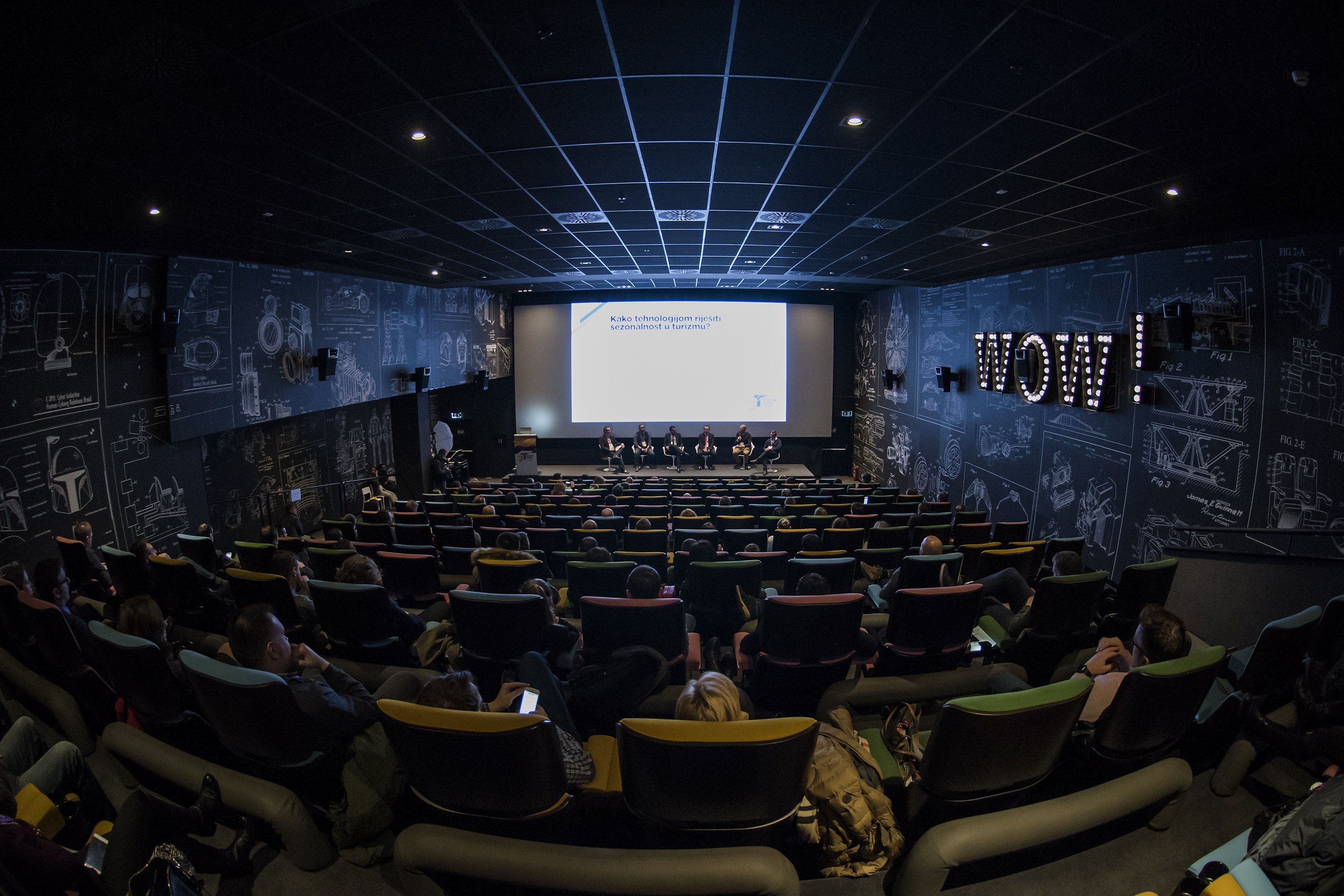
For more information and tickets, click here.
Make sure to stay up to date with our dedicated lifestyle page for more.


